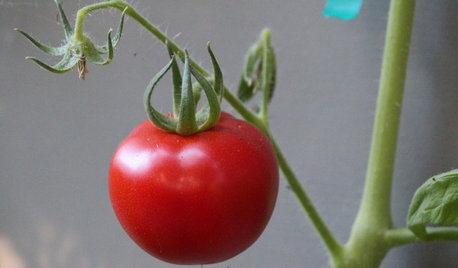SALTY fermented dill pickles
julsie
17 years ago
Related Stories

FARM YOUR YARDIf You Have Room for Only One Summer Crop ...
Get an edible that’s long on flavor even if you’re short on space, with a long-time gardener’s favorite picks
Full Story
COLORDreaming in Color: 8 Gorgeously Green Bedrooms
Bring in a bold splash of watery blue-green or a slice of soft celery for a colorful yet sleep-friendly sanctuary
Full Story



readinglady
ksrogers
Related Discussions
Help my pickles are too salty
Q
Sun-fermented dill pickles
Q
Ball Refrigerator Dill recipe too salty
Q
Dill Pickles - fermentation & vinegar
Q
julsieOriginal Author
Linda_Lou
readinglady
ksrogers
julsieOriginal Author
ksrogers
readinglady
jimster
jimster
readinglady
julsieOriginal Author
readinglady
julsieOriginal Author
readinglady
ksrogers
melva02
melva02
melva02
julsieOriginal Author
jimster
melva02
julsieOriginal Author
ksrogers
jimster
ksrogers
melva02
readinglady
jimster
ksrogers
julsieOriginal Author
melva02
readinglady
ksrogers
herballibra
jimster
ksrogers
rachelellen
valereee
readinglady
ksrogers
brokenbar
sunnshine
jodylra53
chief594
crankyoldman
surya2_q_com
digdirt2